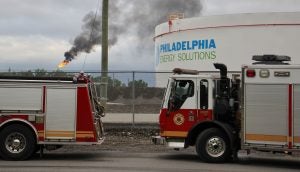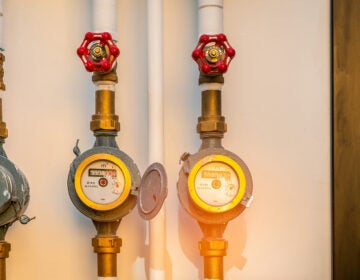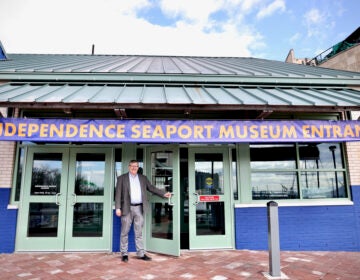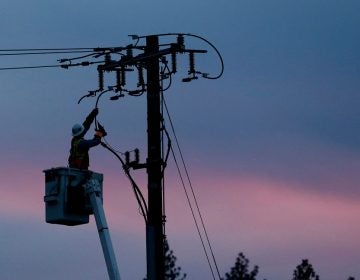Philadelphians deserve a voice in debate over future of local refineries
Residents in Eastwick live next to the single largest generator of particulate emission air pollution in Philadelphia.
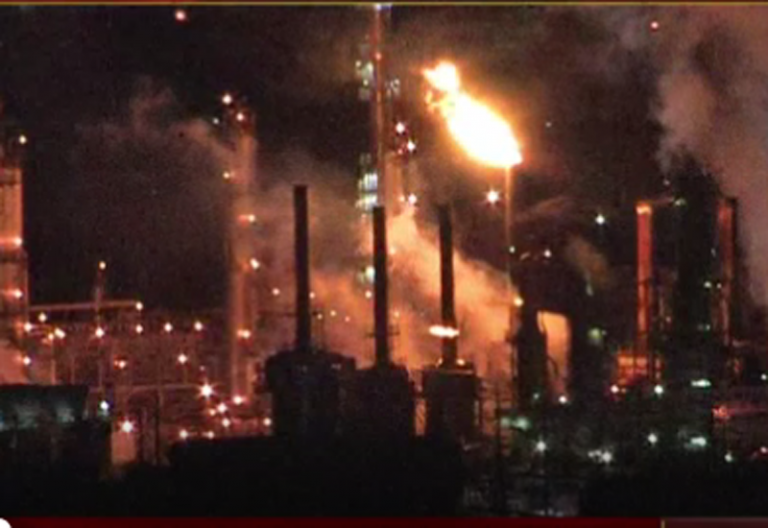
Crews battled a fire at the Philadelphia Energy Solutions refinery on Monday night (NBC10)
The thick cloud of black smoke billowing from the fire at Philadelphia Energy Solutions (PES) Refinery Complex was a sight throughout much of Philadelphia on June 10.
Fans at the Phillies game saw it. It was visible in Camden across the Delaware River. It was an ominous reminder that the oldest and largest petroleum refinery on the East Coast is right here on the banks of the Schuylkill River.
However, residents in Eastwick and the other neighborhoods surrounding the refinery need no reminder. They live next to the single largest generator of particulate emission air pollution in Philadelphia. Their zip code experiences some of the highest asthma rates in the city. Despite concern from local residents, PES has not disclosed what chemicals burned during the fire and what hazards were exposed to residents.
It continues a pattern of blatant disregard for the surrounding neighborhood despite a long history of pollution and toxic contamination. This indifference to local voices extends to ongoing efforts to decontaminate the site as well.
Sunoco, the refinery’s previous owner, maintains liability for ensuring the historic levels of contamination are adequately remediated at the refinery. It has denied local residents, city agencies, elected officials, and other stakeholders opportunities to provide critical input during the remediation planning process.
A wide range of issues detailed in a 2018 report from the University of Pennsylvania’s Kleinman Center for Energy Policy mars Sunoco’s environmental legacy at the PES site. The analysis documents heavy concentrations of lead and gasoline in the soil and groundwater as well as benzene, a known carcinogen, in the soil at elevated levels. There is even reason to believe that the refinery’s pollution could have impacted a drinking water aquifer used by New Jersey. Despite these serious public health concerns, Sunoco has failed to meet even the most basic requirements for community and civic input.
Denying the public a voice up to this point is entirely unacceptable. Sunoco’s failure to engage with the community on remediation efforts elevates a disturbing trend in our city and across the nation. Communities of color and low-income residents are forced to bear a higher burden of dangerous air pollution and environmental hazards. Eastwick is a recognized Pennsylvania environmental justice area, which means 20% or more residents live in poverty, and 30 percent or more of the population is the minority. Public input from businesses, city government, community groups, and residents would advance accountability while identifying local concerns. It will result in a more robust remediation plan and empower residents living near the refinery to improve their health and their communities.
What’s more, the law requires this input. It is imperative that the City of Philadelphia, area residents, and other stakeholders engage in a collective process to ensure proper remediation and fully explore alternative redevelopment scenarios for the refinery sites.
Despite undergoing a reorganization following bankruptcy just last year, PES is likely to be bankrupt again by 2022 when its debts mature. Now is the time to develop a new plan that assumes operations at the refinery will soon end, and to safely repurpose the 1,300 acres of land.
Philadelphia is at a critical juncture as it faces decisions about land use, energy, and the environment. Communities, particularly those most affected by pollution, must have a voice — now. Regulators and community leaders must hold Sunoco accountable and demand the opportunity to provide meaningful input. Communities must demand a seat at the table. No one should be forced to sacrifice their health simply because of where they live.
WHYY is your source for fact-based, in-depth journalism and information. As a nonprofit organization, we rely on financial support from readers like you. Please give today.





